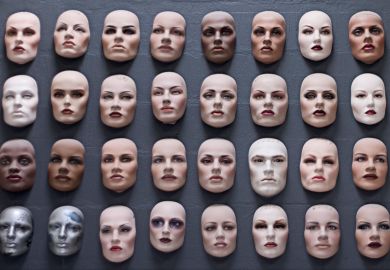The leaders of Australia’s universities have monocultural backgrounds that contrast starkly with the diversity of their campuses, a scathing report has found.
Seventy-four per cent of the country’s vice-chancellors and 82 per cent of its deputy vice-chancellors are of Anglo-Celtic heritage, according to research released by the Australian Human Rights Commission. The remainder are of mainland European background, with people of non-European background making up just 3 per cent of vice-chancellors and 4 per cent of deputy vice-chancellors.
The report says universities’ white leadership is unrepresentative of broader Australian society, where 24 per cent of people have non-European origins. But it is even less reflective of campus populations, where around 10 per cent of students are Australians born outside of anglophone or European countries, and a further 27 per cent are foreigners.
These international students come mainly from large Asian nations and their fees bankroll an increasing share of universities’ activities.
The report examined the cultural backgrounds of federal ministers, members of parliament, the heads and deputy heads of government departments and universities, and the CEOs and group executives of large listed companies. Lead author Tim Soutphommasane singled out universities, along with government departments, for the “particularly low” cultural diversity of their leaders.
Co-author Philipp Ivanov said the lack of diversity in the deputy leadership ranks suggested things would not change any time soon.
“You’re looking at the pipeline of leaders,” said Mr Ivanov, chief executive of thinktank Asia Society Australia. “Although universities are not as hierarchical as companies, you would expect some of the deputy vice-chancellors would go on to become vice-chancellors.”
He said the lack of diversity could be robbing Australian universities of academic talent. “If senior academics feel they are not getting promotion opportunities because of their ethnicity or cultural heritage – and the National University of Singapore offers these opportunities – they will move,” he said.
The new report updates similar research on vice-chancellors in 2016. While their diversity has improved somewhat in the intervening two years, this is because of a single appointment that has lifted the grand total of non-Anglo and non-European vice-chancellors to one – University of Canberra head Deep Saini, an Indian-born botanist.
The report suggests such a skew reflects casual racism. “The clear gap between European and non-European representation within senior leadership points to a cultural dynamic not always openly discussed,” it says.
“Senior leaders of our government institutions, businesses and universities are at the forefront of Australia’s political, economic and educational engagement with non-European and non-American regions. It is crucial we are attuned to the cultural nuances of such engagement.”
Mr Ivanov said the solution lay in guidelines and targets, rather than quotas or positive discrimination policies. He said diversity needed to be embedded in recruitment and promotion strategies throughout academia, not just at the top echelons of management.
Register to continue
Why register?
- Registration is free and only takes a moment
- Once registered, you can read 3 articles a month
- Sign up for our newsletter
Subscribe
Or subscribe for unlimited access to:
- Unlimited access to news, views, insights & reviews
- Digital editions
- Digital access to THE’s university and college rankings analysis
Already registered or a current subscriber?








